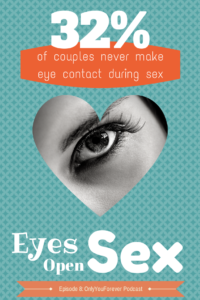
Figure Out What Your Spouse is Actually Upset About
Ever get the feeling that your arguments as a couple are going nowhere? Or maybe you find yourself thinking, “There has to be a better way to solve conflict than this!” Well, there is: turns out there are some essential skills that work for both husbands and wives and can actually lead to deeper intimacy rather than lingering resentments.
Figuring Out Why Someone is Upset Can Be Hard
Let’s just acknowledge right off the bat that it is normal for married folk to struggle with figuring out what the argument is really about.
Turns out there are several possible reasons for this[i]:
-
- Your spouse may not want to share all that they are actually feeling: due to fear of vulnerability.
- It can be hard for you to see what emotions they are conveying in the heat of the moment. Especially if you are trying to focus on your own thoughts and opinions.
- Conflict and arguments tend to move very fast, making it hard to go back and question (with curiosity) what your spouse was actually trying to say.
- Deeper or core issues often show up as distress about specific issues. It is hard to see past the superficial or triggering issue and get to that deeper layer and really solve the problem.
- During conflict, you may not even want to see what emotions your spouse is conveying. Both of you are so worked up that you just end up saying negative things and reacting to reactions, rather than actually trying to discern and resolve the deeper issue.
All that to say: give yourself and your spouse some compassion and try slowing things down. It is hard to figure things out and it takes patience and commitment.
Empathic Accuracy Matters
One of the keys to unlocking the mystery of what your spouse is really upset about is this thing called empathic accuracy. Don’t worry, we’ll make this concept easy to grasp: empathic accuracy is your ability to accurately discern what your spouse is feeling, and why[ii].
The reason you need to get good at empathic accuracy is that this skill is central to resolving conflict, forgiving one another, and building overall marital satisfaction[iii]. This empathic accuracy is the skill of learning to understand one another…sometimes you often hear people talk about soul-mates as if it is some magic woo-woo pixie dust that gets sprinkled on a few lucky couples by the marriage fairy.
Not so: if you learn to do this empathic accuracy thing, you’ll be well on your way towards that soul-mate experience with your spouse. It is a skill anyone can learn, and the research shows that empathic accuracy increased marital satisfaction because it prompts spouses to respond differently to one another. Instead of blundering about in emotional darkness, think what your marriage would be like if you were really attuned to your wife or to your husband. Dialed into what was going on and able to respond accurately and appropriately.
Well, I hope I’ve sold you on empathic accuracy. Now: how to learn this skill?
How To Develop Empathic Accuracy
Emotional Validation
The first technique you need to learn is emotional validation. This is simply expressing the empathy toward your spouse when they are upset or when you are in conflict.
Follow me closely here: conflict is often triggered by incidental events or actions, but at a deeper level it is often driven or intensified by an underlying feeling of not being heard.
For example, if a wife is upset by something her husband did or said, and he does not acknowledge this properly then she will become more upset. How do we fail to respond properly? We get defensive, we blame the other person, we dismiss or minimize their concerns, or we just don’t know what to do so we stonewall them. When that happens then your spouse will become more upset.
At that point, the conflict is no longer about the inciting incident but about your spouse’s need to feel validated[iv].
This is such a key point because you can break out of this by learning validate your spouse’s feeling. Say something like, “I can see why you would feel that way. I would feel the same.” This is emotional validation and it is central to empathic accuracy. When you acknowledge that your spouse has the right to feel what they are feeling, that is a powerful way to resolve conflict and build intimacy[v].
Now: I know what you’re thinking. “But they shouldn’t be feeling that way!” Sometimes that is actually true — the feeling your spouse is expressing does not seem to match the facts. However: if there’s a discrepancy there it is only because you have not gotten to the deeper issue, or because they are responding based on a different set of facts than what you have.
You do not have the same story: you have two different perspectives. When you’re willing to step away from defending your perspective and your feelings for a moment and see the issue through your spouse’s eyes, then you can do this thing we are calling “emotional validation”.
Don’t React Negatively
Empathic accuracy also requires you to learn that you can choose not to react negatively to your spouse’s hostility during conflict. This can be tough but it is certainly doable. I am sure all of us can think of times when someone went ballistic on us and we were able to keep our cool.
Here’s a quote from one study: “To reduce tension and soothe heated feelings, partners must inhibit the impulse toward negative reciprocity, instead reacting in a positive manner. This type of behavior is termed accommodation.[vi]“.
Typically, our arguments as couples escalate because one person says something negative and then the other person responds in kind. When you choose not to react negatively, it makes room for you to see the real need behind the negative words. When you see that real need, you are in a much better place to respond positively.
And as you might imagine, this goes a long way towards reducing conflict and also has the effect of improving your marital wellbeing overall[vii]. That happens because you go from misunderstanding to deeper understanding. This is where conflict in a marriage actually becomes productive because you’re handling it intentionally.
Making Empathic Accuracy Easier
Hopefully you are seeing that these are very doable strategies to help you figure out what your spouse is actually upset about the next time you are in conflict.
It’s helpful to know that researchers have identified three factors that determine levels of empathic accuracy within couples. These are:
-
- Psychological femininity: women generally find it easier to be empathic than men, due to normally showing more emotional concern for others and having better social skills. However, just because women naturally find this easier, there is no reason that men can’t learn these skills as well. They are not female skills, they are merely socialized into women culturally. Men can still learn them.
- Commitment: a link was also found between levels of marital commitment and ability to show empathic accuracy (for both men and women). It’s good to pause and make sure you have committed your heart to your spouse and to your marriage.
- Perspective taking: the ability and willingness to take your spouse’s perspective and see situations through their eyes is also strongly linked to empathic accuracy, and therefore to good conflict resolution and higher marital satisfaction. This cannot be emphasized enough. Are you willing to pause and engage your spouse’s perspective on the matter?
Practice Makes Perfect
A 2005 study[viii] found that it is possible to increase people’s level of empathic accuracy, and their ability to express this empathy, through practice. So we want to underscore again that this is a skill you can learn. By intentionally working with your spouse over time, you will naturally get better at reading him or her and learning to identify the cues that reveal his or her emotional state. You’ll look for certain words, facial expressions and body language and begin to intuitively catalog those into a way of understanding your spouse more deeply.
The researchers also noted that practicing empathy is easier when you get feedback from the person you are speaking to. That’s helpful. Simply asking your spouse to confirm what emotion they are feeling during a conversation lets you see if you are reading them correctly. In some cases, you may even consider (with permission) videotaping yourselves having a conversation, and then review the video together and write down what you think the other person was conveying emotionally and then compare notes.
It may feel a little funny to do that, but that can also be an effective approach to really help you hone this skill of empathic accuracy.
Remember: empathic accuracy is the key to figuring out what your spouse is actually upset about.
References
[i] Alan Sillars et al., “Cognition During Marital Conflict: The Relationship of Thought and Talk, Cognition During Marital Conflict: The Relationship of Thought and Talk,” Journal of Social and Personal Relationships 17, no. 4–5 (August 1, 2000): 479–502, https://doi.org/10.1177/0265407500174002.
[ii] Lauren M. Papp, Chrystyna D. Kouros, and E. Mark Cummings, “Demand-Withdraw Patterns in Marital Conflict in the Home,” Personal Relationships 16, no. 2 (June 2009): 285–300.
[iii] F. Giorgia Paleari, Camillo Regalia, and Frank Fincham, “Marital Quality, Forgiveness, Empathy, and Rumination: A Longitudinal Analysis,” Personality and Social Psychology Bulletin 31, no. 3 (2005): 368–78.
[iv] Guy Winch, Emotional First Aid: Healing Rejection, Guilt, Failure, and Other Everyday Hurts (Penguin, 2013).
[v] Winch.
[vi] Shelley Dean Kilpatrick, Victor L. Bissonnette, and Caryl E. Rusbult, “Empathic Accuracy and Accommodative Behavior among Newly Married Couples,” Personal Relationships 9, no. 4 (n.d.): 369–93, https://doi.org/10.1111/1475-6811.09402.
[vii] Kilpatrick, Bissonnette, and Rusbult.
[viii] David F. Barone et al., “Increasing Empathic Accuracy Through Practice and Feedback in a Clinical Interviewing Course,” Journal of Social and Clinical Psychology 24, no. 2 (March 1, 2005): 156–71, https://doi.org/10.1521/jscp.24.2.156.62275.
Podcast: Play in new window | Download

Thanks for listening!
If you found this episode helpful, don’t forget to subscribe, leave a review, and share it with someone who might benefit.
Let’s keep the conversation going—because growth starts here!
Need Support Now?
Talk to Someone Today





